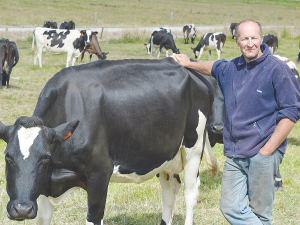Green no more?
OPINION: Your old mate has long dismissed the Greens as wooden bicycle enthusiasts with their heads in the clouds, but it looks like the ‘new Greens’ may actually be hard-nosed pragmatists when it comes to following voters.
 Mark Cameron says ACT has long been calling for the Government to start properly rewarding farmers for the sequestration that already occurs on their farms.
Mark Cameron says ACT has long been calling for the Government to start properly rewarding farmers for the sequestration that already occurs on their farms.
OPINION: It's promising that the Government has adopted ACT’s long held policy of recognising on-farm sequestration for climate change. They should adopt the rest of our climate policy and take a practical approach to emissions that don’t hammer our agriculture sector.
ACT has long been calling for the Government to start properly rewarding farmers for the sequestration that already occurs on their farms and stop making out as if they’re environmental villains.
It’s good that the Government has finally seen sense on sequestration but they can’t use this as an excuse to continue with the burp tax. It will crush sheep and beef farming and increase global emissions as market share goes to less efficient countries.
The burp tax will ultimately be a food tax as prices of meat and dairy rise as a result.
It’s also about time they recognise that methane from livestock, as a short lived gas, has a very different effect on global temperatures compared to the near permanent effect of converting fossil fuel to carbon dioxide.
While they're u-turning on policy they should also repeal the Zero Carbon Act and introduce a nononsense climate change plan which ties our carbon price to the prices paid by our top five trading partners.
There is no need to carry on with the charade that the Zero Carbon Act is anything more than a costly excuse for more bureaucracy with no impact on emissions. Other parties should be prepared to have an honest conversation on climate change like ACT is.
ACT proposes a realistic, no-nonsense climate change policy that matches our efforts with our trading partners’ with minimal bureaucracy. We should set a cap on total emissions in line with the actual reductions of our trading partners, then allow New Zealanders to import high quality foreign carbon credits so we pay the world price, not an artificial price.
Other parties are more concerned about appearance of environmental progress than actual progress.
ACT stands for real change in our climate policy, ensuring it is practical, effective, and not going to make life harder for New Zealanders.
Agrisea NZ has appointed Craig Hudson as it's new chief growth officer.
State farmer Landcorp, trading as Pamu, is a forecasting a full-year net profit of around $100 million.
Tony Aitken, chief executive of Ruralco, has been awarded the Excellence in Business Leadership Award at the ANZ Business of the Year Awards.
Global trade has been thrown into another bout of uncertainty following the overnight ruling by US Supreme Court, striking down President Donald Trump's decision to impose additional tariffs on trading partners.
Controls on the movement of fruit and vegetables in the Auckland suburb of Mt Roskill have been lifted.
Fonterra farmer shareholders and unit holders are in line for another payment in April.
OPINION: Staying with politics, with less than nine months to go before the general elections, there’s confusion in the Labour…
OPINION: Winston Peters' tirade against the free trade deal stitched with India may not be all political posturing by the…